Brave, new digital worlds
missing translation: fa.article-intro.reading-time – Copy: Patrick Morda ― Photo: Robert Fischer – 05/12/2023
missing translation: fa.article-intro.reading-time – Copy: Patrick Morda ― Photo: Robert Fischer – 05/12/2023
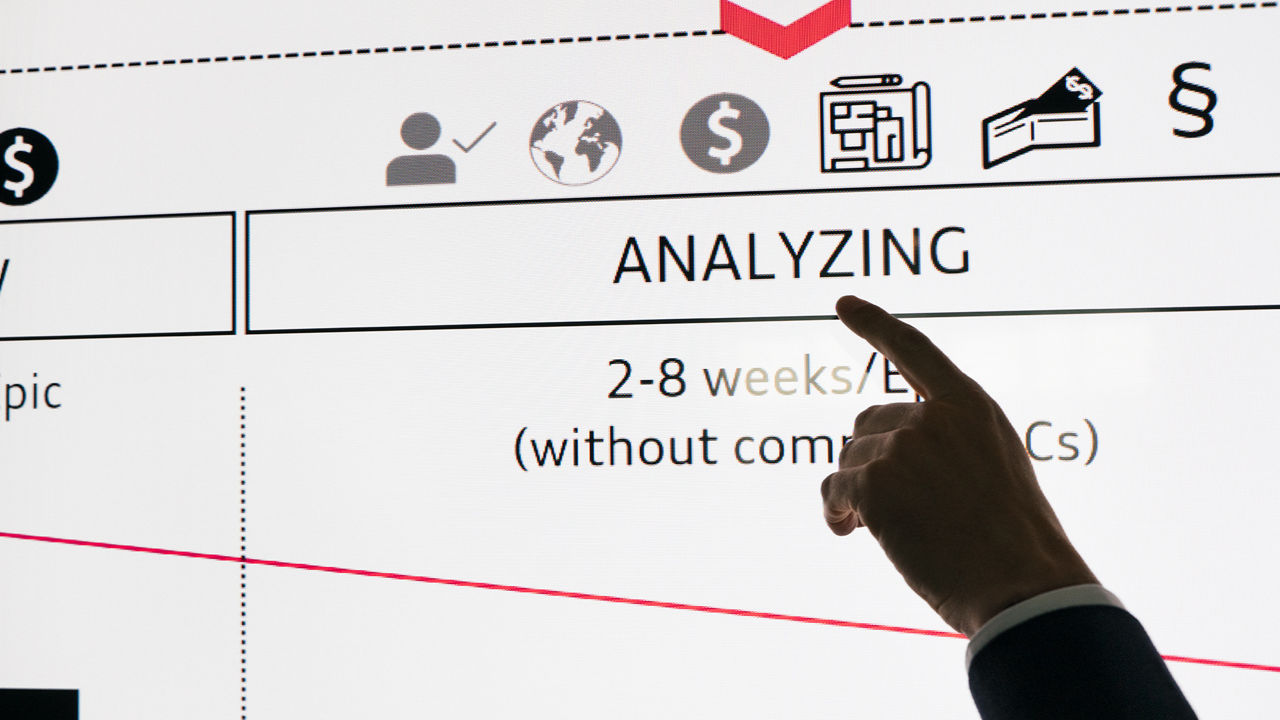
Analysing requirements and prioritising projects accordingly are key pillars in developing digital business areas.
Analysing requirements and prioritising projects accordingly are key pillars in developing digital business areas.
Ms. Maier and Mr. Meiners, tomorrow’s mobility is usually equated with drive technology. Does that fail to do justice to digitalisation?
Boris Meiners: You can’t have one without the other. Advances in battery-powered electric vehicles highlight the need for a digital ecosystem supporting all aspects of mobility. The way to achieve this is with digitalisation: When vehicles and the charging infrastructure are connected, drivers can see the location of available charging stations in the navigation system. Most e-tron model buyers in Germany download and register on the myAudi app. Once their cars are paired with the app, they get to enjoy our services.
Annegret Maier: Although electrification changes the way a vehicle works, you’re still just driving a car. That’s why the true challenge in transforming mobility is networking the real and digital worlds. Only by embedding the vehicle in an ecosystem of digital services can we offer a 360-degree experience and take our place as a key link in the mobility chain.
When it comes to developing these services and functions, your departments carry the ball.
Boris Meiners: Yes, that’s right. Together with the markets, we identify where there’s a customer need and what its nature is. That entails noting and evaluating requirements and establishing priorities for implementation. In this regard, we’re talking about both evolution and revolution. Finding a basis for comparison and categorisation between such vastly differing topics is a major challenge. Ultimately, neither of us makes the decisions. That falls to a dedicated cross-divisional committee. Instead, our work focuses on managing these ideas and expectations.
Annegret Maier: In all digital matters, we act as the bridge - and it’s very much a two-way street - between our core development teams and the international markets. What’s more, we review how well the services and features that have been released to the public are received around the world. And it’s important to always implement the right idea at the right time.

“Users’ willingness to share their personal information is key to digital ecosystems but attitudes to privacy differ dramatically around the world. Germans are comparatively reluctant in this regard.” Annegret Maier

As Director Market Relations & Performance Tracking for Digital Business, Annegret Maier keeps a finger on the pulse when it comes to market and customer needs.
“Users’ willingness to share their personal information is key to digital ecosystems but attitudes to privacy differ dramatically around the world. Germans are comparatively reluctant in this regard.” Annegret Maier
As Director Market Relations & Performance Tracking for Digital Business, Annegret Maier keeps a finger on the pulse when it comes to market and customer needs.
“You have to embrace digitalisation; that hybrid on and offline world.
Annegret Maier, Director Market Relations & Performance Tracking for Digital Business
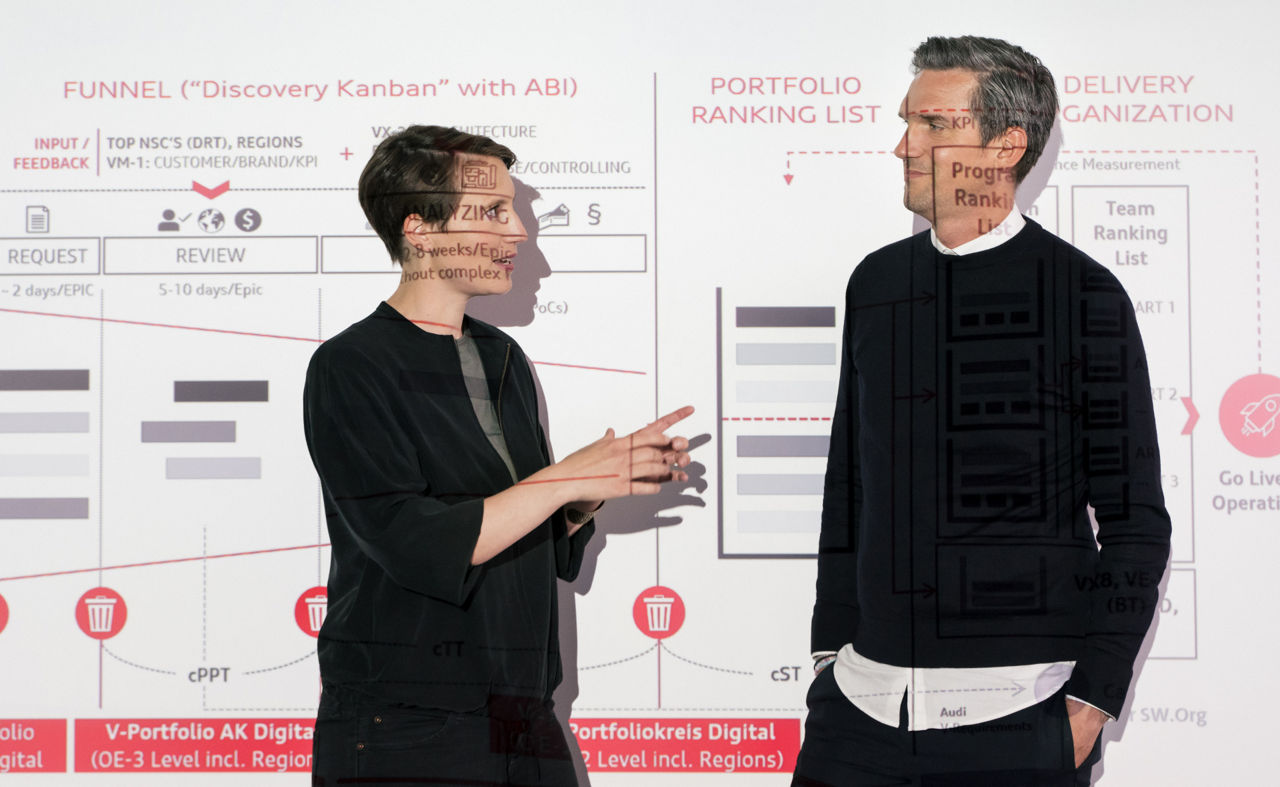
To make this more tangible, please explain what you mean by evolution?
Annegret Maier: Evolution refers mainly to continuously improving existing functions. For instance, we have revised how we ask for our customers’ consent to process their data. At first, that might not sound like a big deal. But if users don’t consent, they can’t benefit fully from our services and offerings. Germans are far more hesitant about that kind of thing than, say, the Chinese.
So requirements vary globally from place to place?
Boris Meiners: On average, our customers in China are in their early 30s - much younger than those in Europe - and they see themselves and the world very differently. For them, a battery-powered electric vehicle is for all intents and purposes a networked, digital vehicle. A case in point: In China, you can already make contactless payments via third-party apps at gas stations and parking garages, so there’s no need to get out of your Audi vehicle.
Annegret Maier: You have to embrace digitalization; that hybrid on and offline world. Users’ willingness to share their personal information is key to digital ecosystems but attitudes to privacy differ dramatically around the world. Germans are comparatively reluctant in that regard.
In other words, you need to sell people on the benefits?
Annegret Maier: What we do is not an end in itself. It goes far beyond just sending out e-mail newsletters. Our customised services and functions provide information that offers added value. Looking ahead, consenting users will be able to save personalised information, including vehicle or seat settings, radio and navigation data. Transferring those details to a new car, for instance, makes getting used to a different vehicle much easier because you instantly feel at home.

Boris Meiners recently spent several years working for Audi in China. Today, he heads the Digital Business Portfolio and Program Management department.
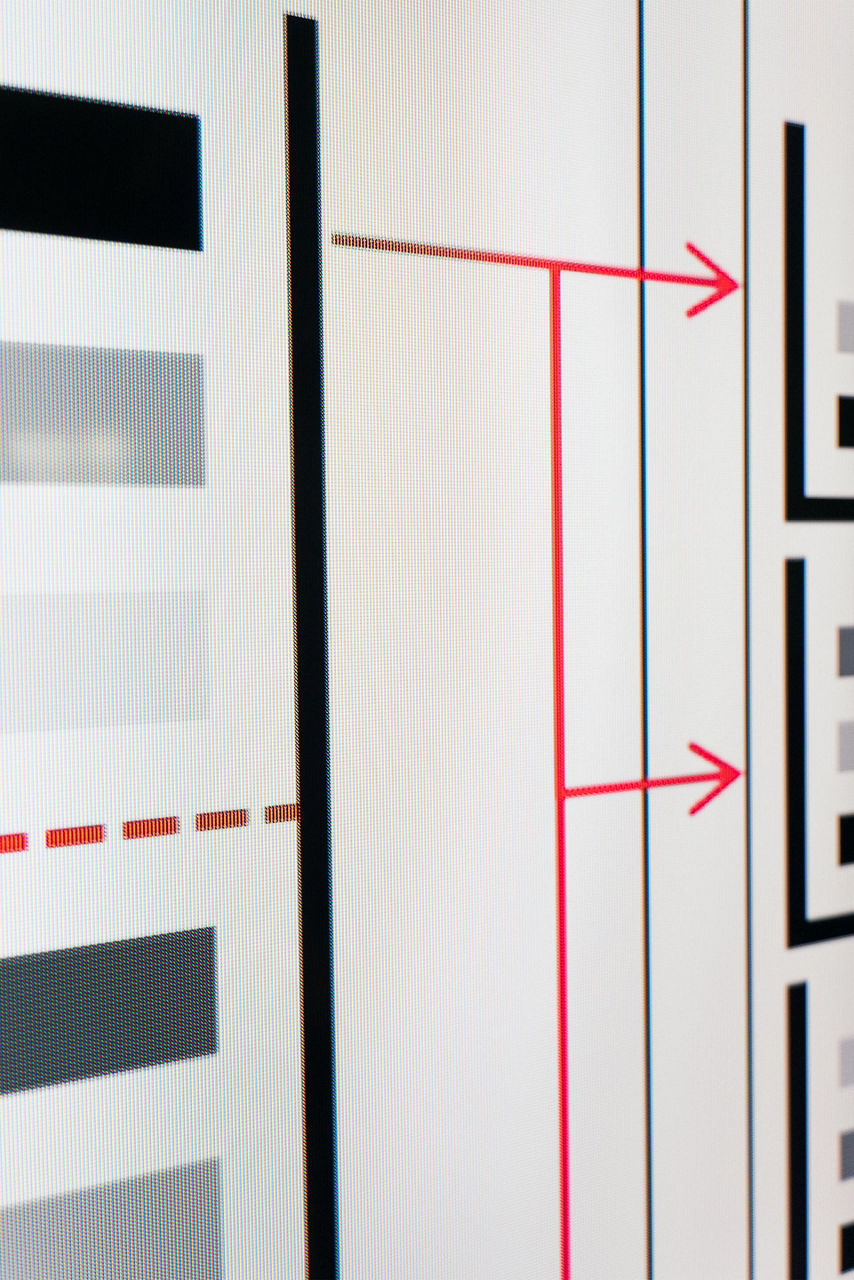
The work that Annegret Maier and Boris Meiners do focuses on managing new ideas and budding expectations.
Boris Meiners recently spent several years working for Audi in China. Today, he heads the Digital Business Portfolio and Program Management department.
The work that Annegret Maier and Boris Meiners do focuses on managing new ideas and budding expectations.
“Today, some customers already want the option of completing the entire customer journey to purchasing a car digitally.
Boris Meiners, Head of Digital Business Portfolio and Program Management

Is that the kind of project you consider revolutionary?
Boris Meiners: A better example of that is what is known in-house as oneAudi. Our vision for that project is to harmonise all of the Four Rings’ digital contact points so that navigating the Audi world of mobility is as frictionless and seamless as possible but at the same time geared to customers’ individual needs.
Annegret Maier: This is essentially something that is already established practice among e-commerce businesses, such as large online mail order companies. You log on to a platform and can very easily locate the digital content and offerings that interest you. Going forward, when you log onto the Audi world from your home PC, your car or via an information screen in the dealership, you will enter a familiar digital space, no matter whether you’re looking for a new Audi, a used car or services. This approach is still very new in the automotive sector.
Research indicates that, by 2030, automotive retail will be a truly omnichannel business. Does that mean you’re paving the way to increasingly sell vehicles online in the future as well as at bricks-and-mortar dealerships?
Boris Meiners: For some time now, the process of buying a car has been growing more digital. We know that many customers today already want the option of completing the entire customer journey to purchasing a car - including various payment and financing options - digitally. What’s more, we will be launching SAIC Audi, our second joint venture in China, at the end of the year. All vehicles produced as part of this joint venture will be sold exclusively through the omnichannel business.
Annegret Maier: That’s a highly realistic eventuality. In fact, I think it will happen well before 2030. In ongoing consultation with dealerships, we are currently in the process of setting up and rolling out omnichannel systems in the first European markets. While it goes without saying that we need to take cultural and legal differences into account, there are also questions surrounding how much people are willing to spend online and how the return policy will work.

Keeping channels for dialog open: Annegret Maier and Boris Meiners always strive to have the right idea at the right time.

“Our vision for oneAudi is to harmonise all of the Four Rings’ digital customer contact points.” Boris Meiners
Keeping channels for dialog open: Annegret Maier and Boris Meiners always strive to have the right idea at the right time.
“Our vision for oneAudi is to harmonise all of the Four Rings’ digital customer contact points.” Boris Meiners
How do bricks-and-mortar dealerships fit into what is becoming an increasingly digital picture?
Annegret Maier: Audi continues to set store by dealerships. No matter how digital the world becomes, many people don’t want to be deprived of the chance to interact with a person and get advice on the vehicle before and after the purchase. Although digital solutions make some things much faster and more efficient, others are all about the human factor - which is both a huge opportunity and challenge at the same time.
Boris Meiners: Similarly, the Coronavirus pandemic has proven just how valuable digital tools and services really are. Demand for services such as virtual purchase advice and live chats has skyrocketed, which has also significantly fast-forwarded our internal processes.
How far into the future do you try to see in your work?
Boris Meiners: With specific reference to our day-to-day work, it doesn’t make much sense to look further than one or two years ahead. The rate at which things change is simply too great. That’s also why it’s so challenging to align our processes with vehicle development cycles, which are significantly longer and still relatively inflexible. A glance at the new Audi concept cars, however, leaves you in no doubt that digitalisation and the services it enables will become genuine USPs and differentiators in the long term.
Annegret Maier: At the back of our minds, we always also envision a future where autonomous driving will be a possibility. In that scenario, too, we want to have our digital ecosystem mapped out. Those customer services would primarily revolve around Audi brand experiences outside of driving. Concept cars such as the Audi grandsphere¹ are testimony to how our vehicles are evolving into “experience devices” and what the future may hold.
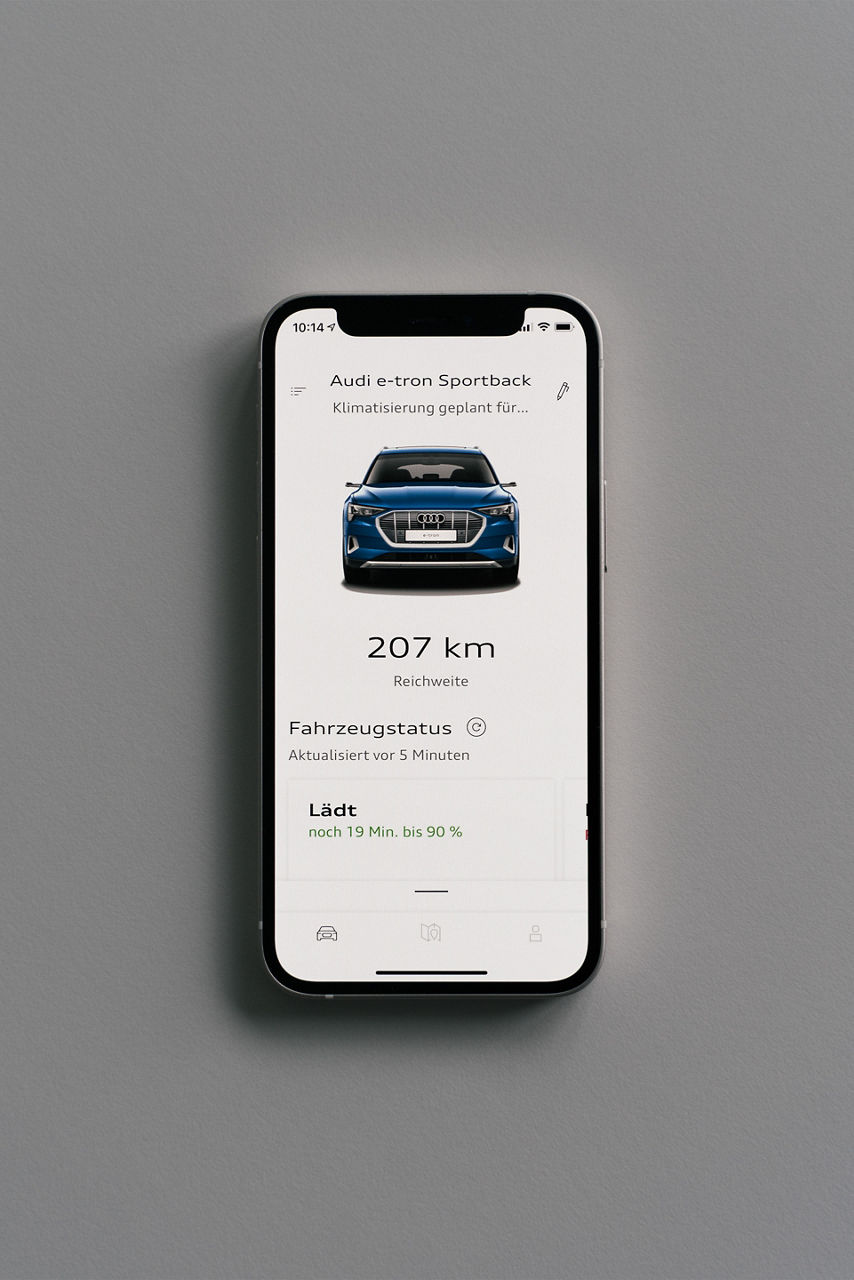
As we move into the e-mobility era, networking vehicle and digital ecosystems will play a key role.
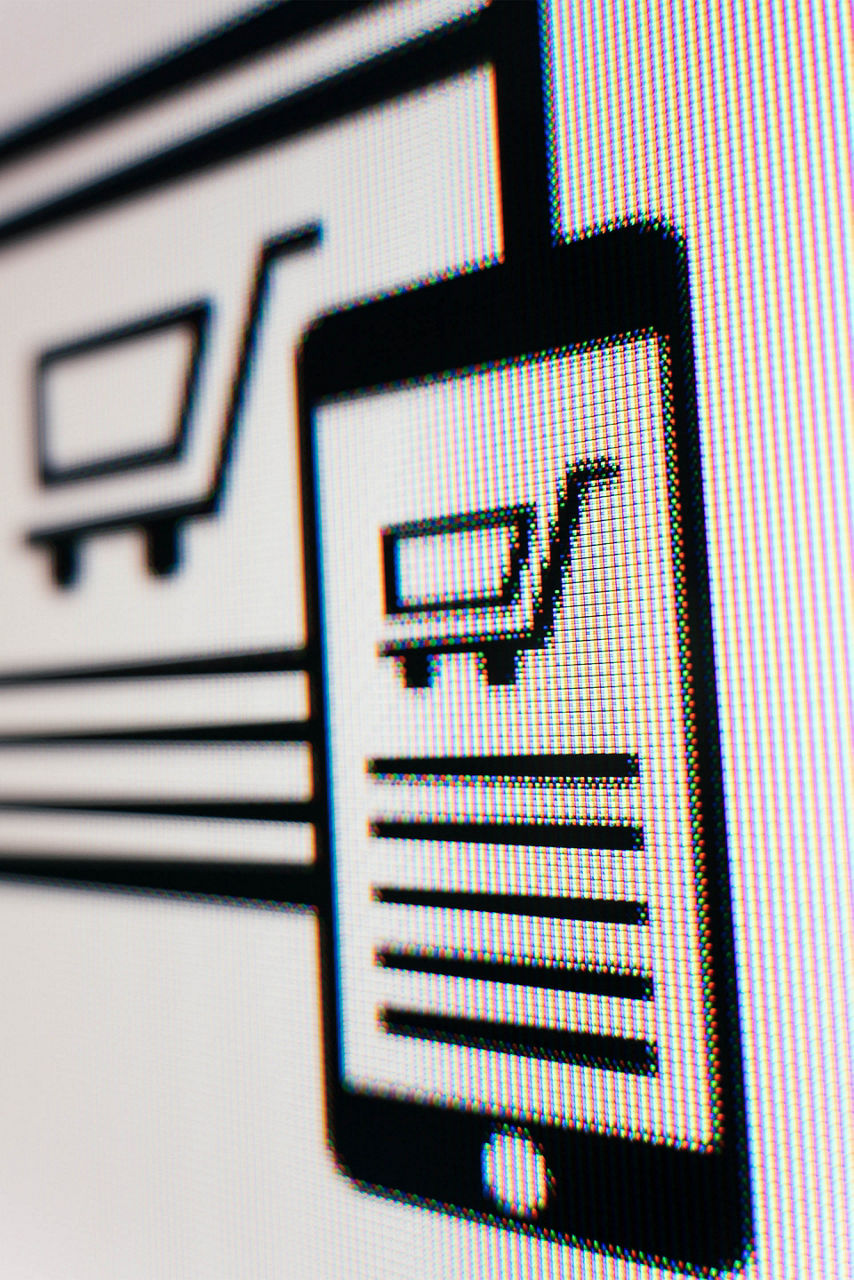
By 2030, it is anticipated that traditional bricks-and-mortar dealerships will have transformed into an omnichannel business.
As we move into the e-mobility era, networking vehicle and digital ecosystems will play a key role.
By 2030, it is anticipated that traditional bricks-and-mortar dealerships will have transformed into an omnichannel business.